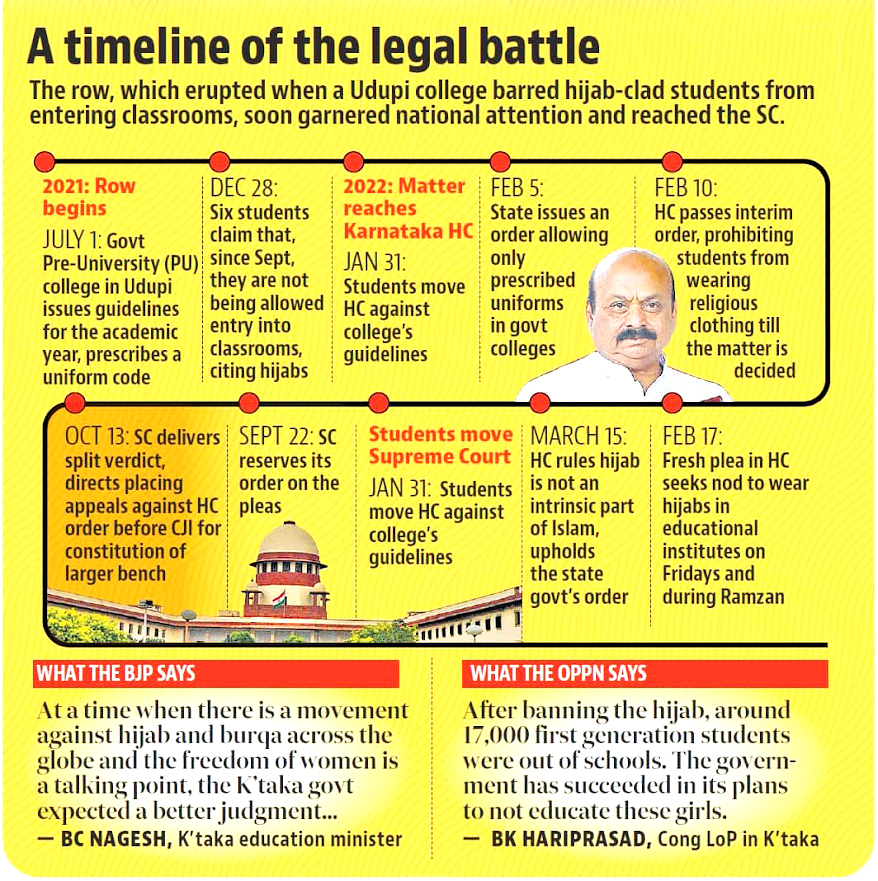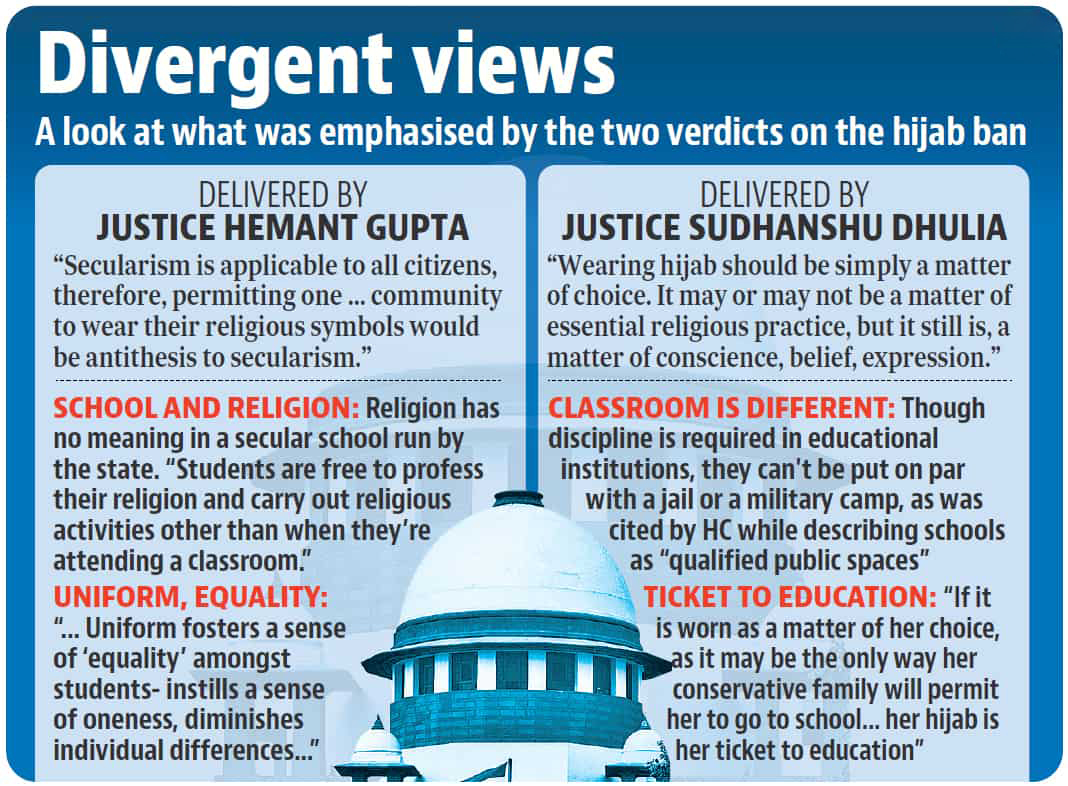Indian Polity
Karnataka Hijab Ban Case
- 14 Oct 2022
- 5 min read
For Prelims: Supreme Court, Hijab, Fundamental Rights, Cases Related to Freedom of Religion
For mains: Fundamental Rights, Judiciary, Government Policies & Interventions, Women's Issues, Cases Related to Freedom of Religion
Why in News?
Recently, the Supreme Court has delivered a split verdict in the Karnataka Hijab ban case.
- In case of a split verdict, the case is heard by a larger Bench.
- The larger Bench to which a split verdict goes can be a three-judge Bench of the High Court, or an appeal can be preferred before the Supreme Court.
- In March, 2022, the high court had dismissed the petitions filed by a section of Muslim students in Karnataka seeking permission to wear the hijab inside classrooms, ruling it is not a part of the essential religious practice in Islamic faith.
What are the Highlights of the Verdict?
How have courts ruled so far on the issue of a hijab?
- In 2015, at least two petitions were filed before the Kerala High Court challenging the prescription of dress code for All India Pre-Medical Entrance which prescribed wearing “light clothes with half sleeves not having big buttons, brooch/badge, flower, etc. with Salwar/Trouser” and “slippers and not shoes”.
- Admitting the argument of the Central Board of School Education (CBSE) that the rule was only to ensure that candidates would not use unfair methods by concealing objects within clothes, the Kerala HC directed the CBSE to put in place additional measures for checking students who “intend to wear a dress according to their religious custom, but contrary to the dress code”.
- In Amna Bint Basheer v CBSE (2016), the Kerala HC examined the issue more closely.The Court held that the practice of wearing a hijab constitutes an essential religious practice but did not quash the CBSE rule.
- The court once again allowed for the “additional measures” and safeguards put in place in 2015.
- However, on the issue of a uniform prescribed by a school, another Bench ruled differently in Fathima Tasneem v State of Kerala (2018).
- A single Bench of the Kerala HC held that collective rights of an institution would be given primacy over individual rights of the petitioner.
How is Religious Freedom Protected under the Constitution?
- Article 25 to 28 of Part-3 (Fundamental Rights) of the Constitution confers Right to freedom of religion.
- Article 25(1) of the Constitution guarantees the “freedom of conscience and the right freely to profess, practise and propagate religion”.
- It is a right that guarantees a negative liberty — which means that the state shall ensure that there is no interference or obstacle to exercise this freedom.
- However, like all fundamental rights, the state can restrict the right for grounds of public order, decency, morality, health and other state interests.
- Article 26 talks about the freedom to manage religious affairs subject to public order, morality and health.
- Article 27 states that no person shall be compelled to pay any taxes for the promotion or maintenance of any particular religion.
- Article 28 states that the freedom to attend religious instruction or religious worship in certain educational institutions.
Way Forward
- In the prevailing political climate, the Karnataka government mandating either a prescribed uniform or any dress that was “in the interest of unity, equality and public order” was seen as a majoritarian assertion in the garb of enforcing secular norms, equality and discipline in educational institutions.
- A verdict that legitimises this non-inclusive approach to education and a policy that may lead to denial of opportunity to Muslim women will not be in the country’s interest.
- Reasonable accommodation should be the course as long as the hijab or any wear, religious or otherwise, does not detract from the uniform.








